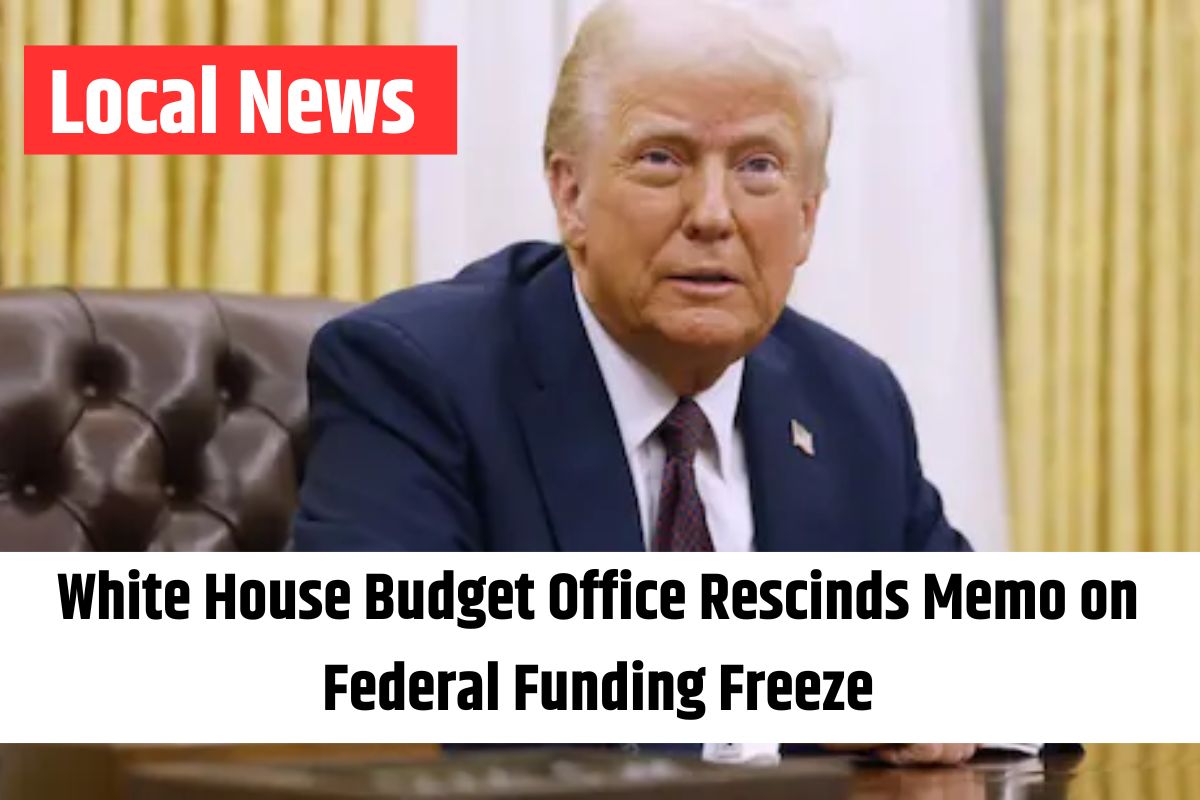
In a dramatic turn of events, the Trump administration’s Office of Management and Budget (OMB) reversed its decision to freeze a wide array of federal financial assistance programs, following a firestorm of criticism from lawmakers on Capitol Hill.
The OMB’s initial memo, issued Monday, caused significant disruption across federal programs, including grants and loans, as it sought to enforce several executive orders from President Trump. The freeze was meant to halt most foreign development assistance, end federal diversity, equity, and inclusion (DEI) programs, and pause climate-related initiatives funded by the Inflation Reduction Act signed by former President Biden.
But after a swift backlash, the White House rescinded the freeze Wednesday afternoon. Acting OMB Director Matthew Vaeth signed off on the decision, marking a quick reversal amid growing concerns from Republican senators. Many lawmakers had expressed confusion and frustration as they were flooded with calls from community leaders worried about losing vital federal funds.
“I’m relieved,” said one GOP senator, reacting to the news. “Chaos doesn’t help anyone.”
Among the most vocal critics was Senate Appropriations Committee Chair, Susan Collins (R-Maine), who expressed approval of the administration’s change of direction. In a statement, she described the initial memo as “overreaching” and “unnecessary,” adding that it had caused undue confusion across the country.
Also Read – Utah Lawmakers Back Bill to Support Students Still Learning English with More Funding
Initially, the freeze had been designed to ensure federal programs aligned with Trump’s executive orders. These included a pause on foreign assistance and a crackdown on DEI and climate programs. However, it quickly became clear that the situation was untenable. The freeze impacted essential services such as Medicaid and early education programs, creating public outcry as the Medicaid web portal went offline and left many states scrambling to maintain services.
White House Press Secretary Karoline Leavitt sought to clarify the administration’s position, emphasizing that Trump’s executive orders on federal funding and spending reviews would remain in place. Despite rescinding the memo, Leavitt asserted that the administration’s commitment to reducing wasteful federal spending would continue.
“We’re moving forward with enforcing the president’s orders to ensure responsible funding,” Leavitt said. “This action will end the confusion and allow us to focus on controlling federal spending.”
While the memo’s rescindment restored funding to many federal programs, some GOP senators were quick to point out that this was part of the regular process of advising and consenting. Senator Mike Rounds (R-S.D.) explained that the freeze was re-evaluated after concerns were raised by Republican lawmakers, who questioned how it would affect their constituents.
Also Read – Utah’s 2034 Winter Games: What Lawmakers Plan to Do Next
“The key here was asking the right questions,” Rounds said. “It’s about finding the best path forward, and I think that’s exactly what happened.”
One of the major issues that prompted the reconsideration was the disruption to Medicaid services, which impacted states and caused widespread concern. Early education and community health programs also faced similar challenges due to access issues with the Department of Health and Human Services’ payment management portal.
On the other side of the aisle, Senate Majority Leader Chuck Schumer (D-N.Y.) celebrated the decision to rescind the freeze but called on Republican senators to vote against President Trump’s nominee for OMB, Russell Vought. Schumer warned that another funding moratorium could still be in the works if Vought’s nomination proceeded.
“We need to make sure this doesn’t happen again,” Schumer said, adding that Republicans should stand firm against what he described as “lawless” actions that hurt working families in favor of the wealthy.
Despite the reversal, the broader debate over federal spending and Trump’s executive orders is far from over, and the political fallout from this episode is likely to continue shaping the legislative agenda in the coming weeks.







